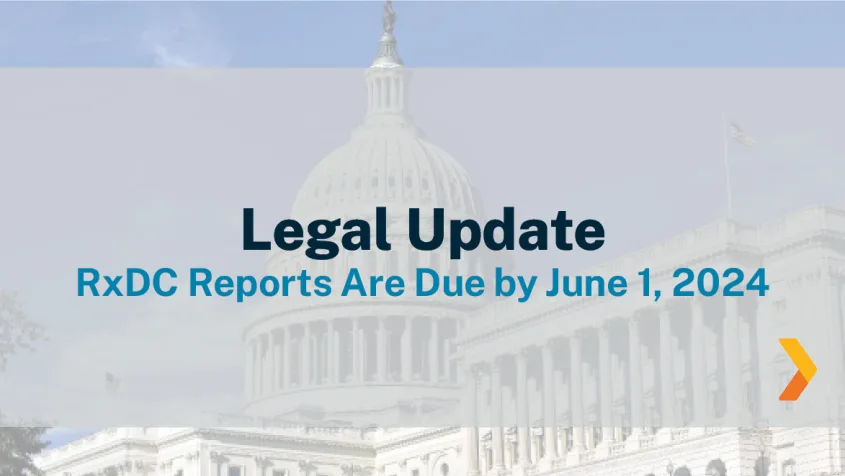Every year, group health plans and health insurance issuers are obligated to furnish comprehensive data regarding prescription drug and healthcare expenditures to the federal authorities. This reporting, known as the “prescription drug data collection” (RxDC report), is mandatory. It must be submitted annually by June 1, encompassing details from the preceding calendar year.
The next RxDC report is due by Saturday, June 1, 2024, covering data for 2023. Employers should confirm they are taking steps to comply with this reporting deadline, such as providing information to third-party vendors on a timely basis.
RxDC Reporting
RxDC reporting is required for all group health plans, including fully insured, self-insured and level-funded health plans. The RxDC report is comprised of several files, including those that require specific plan-level information, such as plan year beginning and end dates and enrollment and premium data. It also includes files that require detailed information about medical and pharmacy benefits.
RxDC reports must be submitted through an online portal maintained by the Centers for Medicare and Medicaid Services (CMS). CMS’ RxDC website includes updated reporting instructions and other reporting resources.
Using Third Parties to Submit RxDC Files
Employers commonly use third parties, such as issuers, third-party administrators (TPAs) and pharmacy benefit managers (PBMs), to submit RxDC reports on behalf of their health plans. Employers using third parties to submit RxDC reports must ensure that this reporting responsibility is reflected in a written agreement with the third party.
Interim final rules provide that if the issuer of a fully insured group health plan is required by written agreement to submit the RxDC report but fails to do so, then the issuer—not the plan—violates the reporting requirements. However, unlike fully insured plans, the legal responsibility for RxDC reporting stays with a self-funded plan even if a third party (for example, TPA or PBM) agrees to provide the report on the plan’s behalf.
Employers will likely need to provide their third-party vendors with plan-specific information, such as enrollment and premium data, to complete their RxDC submission. Employers should watch for these vendor surveys or data collection instructions and promptly provide the requested information.
Employers may work with multiple third parties to complete the RxDC report for their health plans. For example, a self-insured employer may use both its TPA and PBM to submit different portions of the RxDC report. A health plan’s submission is considered complete if CMS receives all required files, regardless of who submits them.
Next Steps
Employers should consider taking the following steps to comply with the RxDC reporting requirement:
- Respond promptly to any information requests from the third party submitting the RxDC files for your health plan;
- Reach out to issuers, TPAs or PBMs, as applicable, to confirm they will submit RxDC files for your health plan;
- Confirm that your written agreement with the third party submitting RxDC files has been updated to include this reporting responsibility; and
- For self-insured health plans, monitor the third party’s compliance with the RxDC reporting requirement.


